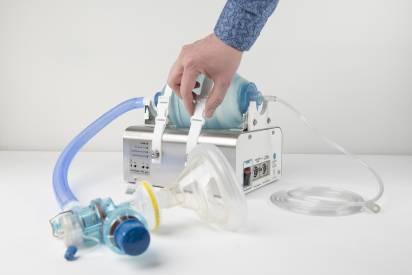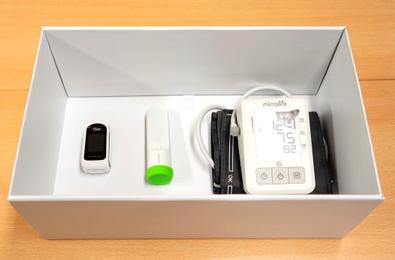 The International Centre for Frugal Innovation (ICFI) has started a new series of blogs in which its staff members, students and affiliated researchers reflect on the role of frugality and frugal innovation in times of Covid-19 in different parts of the world. The first blog is written by André Leliveld, Associate Director of ICFI. He situates his blog in his home country, the Netherlands.
The International Centre for Frugal Innovation (ICFI) has started a new series of blogs in which its staff members, students and affiliated researchers reflect on the role of frugality and frugal innovation in times of Covid-19 in different parts of the world. The first blog is written by André Leliveld, Associate Director of ICFI. He situates his blog in his home country, the Netherlands.
Corona creates new resource constraints
The new Corona virus COVID-19 (further referred to as Corona) challenges health care systems across the globe, the pandemic affects almost each and every country. While severe constraints in health care are not new to the majority of the world population, this is the first time in my life – being born in 1962 - that I witness health resource constraints in my own country, the Netherlands. Hospitals are struggling to keep pace with the number of seriously ill who need life support. Testing kits, ventilation devices, protective clothing, and face masks are in short supply. Medical staff and politicians are deeply concerned about whether stocks can be replenished in time. It may not come to a surprise to the reader when I plea from my position – working at ICFI - for a frugal approach to cope with this resource constrained situation. The design and production of frugal health technologies and medical devices may help the Netherlands to cope with the havoc Corona creates in the medical world.

Global production and delivery system hampered
What the Dutch government and medical institutes currently need are production and distribution facilities and networks that can deliver fast and sufficient supplies of medical devices at affordable prices, to serve and save as many patients as possible. But the current systems of production and distribution can't answer these needs. The Netherlands is highly dependent for its medical devices on global value chains, dominated by international companies that assemble medical devices elsewhere, outside the Netherlands, with parts that come from all over the world. Today, the technological sophistication involved in the production of medical devices does not allow companies to develop and keep all knowledge and expertise needed in their own house and to produce and assemble all parts on their own in one location, for example in the Netherlands. This would involve huge costs that would translate into prices that would outcompete the company in the (international) market.

Whereas these global value chains can usually keep up with countries’ demand, pandemics such as Corona can jeopardize these global value chains. Currently, we experience in the Netherlands that worldwide country lock-downs, stricter customs regulations, and airline companies suspending operations severely delay the production and delivery of the much needed devices. And the technological sophistication involved in production of these devices does not allow Netherlands based companies to simply take over. This would require huge investments and will result in prices that will lead to suboptimal outcomes given available government budgets and the quantities needed. In short, the resilience of the Netherlands to cope with the sudden high demands for medical devices is currently at stake.
A frugal approach can help
Adopting a frugal approach can contribute to overcoming existing constraints. In-country production will be possible if simpler technologies and devices can be designed and applied that combine basic functionalities with optimized performance. ‘Simpler’ does mean that devices are stripped from expensive parts and parts that have to be imported, to be replaced by locally available, cheaper inputs, which would also significantly reduce the price of the devices. The technologies should also allow for relatively easy and short-term adaptions or reconfigurations in equipment and assembly lines which originally were not meant to produce these devices and aides. And existing quality standards regimes and regulations that govern the production and distribution of medical devices should allow for this frugal change to happen, without putting medical staff and patients at risk. In sum, frugal thinking could help out the Netherlands in this corona crisis.
The good news: frugal solutions start to emerge
I am optimistic that a frugal approach will help. I already observe that Corona has started to boost frugal thinking among creatives, researchers and entrepreneurs, which has spurred a search for creative, frugal solutions that could help to cope with the new realities and needs. Examples in the Netherlands include the VentilatorPAL an open source ventilator which costs a fraction of a conventional respirator, and is medically certified. Similar initiatives are popping up, either in the Netherlands or in other European countries, even a Formula 1 engine facility is involved. In an Italian hospital they have slightly adapted a snorkel for underwater sports to help to ventilate patients.

The availability of ventilators is important and of vital concern, but not the only one. A well-known bed mattress producer in the Netherlands has decided to temporarily dedicate part of its production capacity to the production of FFP2 mouth masks, which are direly needed in the Netherlands (and elsewhere) for medical personnel and people working in home care. The Leiden University Medical Centre has develop a easy to use so called COVID-Box, which contains monitoring and test devices which can be used by Corona patients with mild symptoms at home. This box is a redesign of a box which was developed earlier for patients suffering from heart diseases. Many easy to handle and often free access Apps and other digital tools for the diagnosis and testing of Corona are mushrooming. Although figures are not yet available, anecdotal evidence seems to show that e-health use is on the rise in the Netherlands, also in mental health care, where in the near past Dutch doctors and patients have been reluctant to use e-health. Similar developments can be observed elsewhere.

Towards frugality in health care?
The Corona crisis affects us all and it is not good. But the proverbial saying that in every crisis lies an opportunity may hold here as well. The crisis seems to spur our ideas, imagination and innovative capabilities to design and come with frugal medical solutions that can help more people at lower costs. This may also inspire us after the corona crisis, to keep and make health care systems sustainable and inclusive, in the Netherlands and elsewhere in the world. Learning also from experiences in different contexts will be key in understanding how this can be done. ICFI will continue to investigate this in its health domain.
Subscribe to our blog series and stay involved with us for upcoming reflections on the role of frugality and frugal innovation in times of Corona in different parts of the world.
#1: Innovation during the crisis: How COVID-19 could boost frugal health technologies
#2: Frugal Innovation during the COVID-19 crisis: Examples from East Africa
